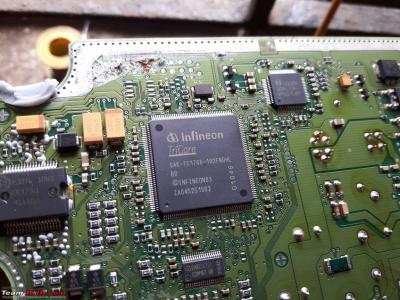Once upon a time, the automobile was a mostly mechanical beast, but no longer. Advanced electronics have weaved their way into the modern car, from engine to infotainment and climate control to the buttons now sprinkled throughout the passenger cabin. The gains in amenity and efficiency can’t be sniffed at, but it leaves manufacturers reliant on semiconductor suppliers to get cars out the door. Over the past year, it’s become much more complicated — with many automakers having to slow production in the face of integrated circuit shortages that can be traced back to Spring of 2020.
Shortages Rippling Through the Supply Chain
Unsurprisingly, the blame for this situation can be lain firmly at the doorstep of the ongoing coronavirus pandemic. Automakers were forced to scale back production as factories closed to avoid spreading the deadly virus. This meant slashing orders with suppliers, particularly as the just-in-time nature of modern automobile production means there’s little to no space to warehouse excess parts in factories. It coincided with a drop in automotive sales during the early part of lock down, as few contemplated new car purchases during the turmoil of March and April, 2020.
In this same period, demand for consumer electronics shot through the roof, as schools and businesses switched to remote operation. Webcams flew off store shelves, and companies spent great sums equipping their workers with laptops to enable their staff to work from home. With a shortage in that sector, semiconductor foundries switched production lines over to churn out the parts in greatest demand, scaling back on parts for automakers who had curtailed their orders.
As the year progressed, demand for new automobiles rose, often attributed to general fear of being exposed to the virus causing consumers to avoid public transportation. With limited production capacity, chip foundries can’t simply make more chips; instead, automakers have had to shut down production on some lines while they wait for deliveries to catch up with demand.
Honda, Toyota, Fiat-Chrysler, and Ford have all been impacted by the shortages. Tier-one supplier Bosch have noted the shortage is particularly acute in parts used for engine and transmission control units. With these parts being particularly specialised for automotive applications, it’s likely their comparatively small market has meant that foundries are focusing on shipping parts for consumer goods first thanks to their higher volumes. With lead times measured in months, it’s likely to be some time before car manufacturers can get back to full capacity.
You Need Every Part to Finish the Build
It’s not the first time automakers have faced shortages, and it won’t be the last. A fire at …read more
Source:: Hackaday

